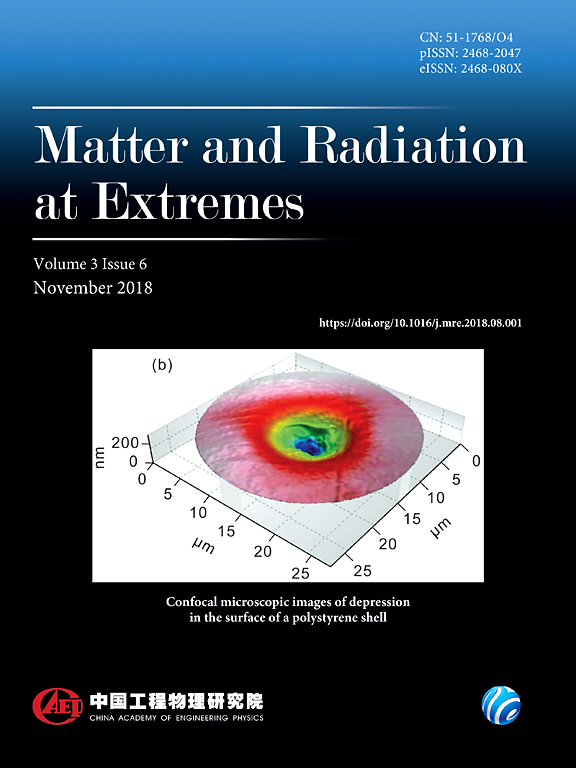n掺杂fcc-LuH3常规超导的第一性原理研究
IF 4.8
1区 物理与天体物理
Q1 PHYSICS, MULTIDISCIPLINARY
引用次数: 16
摘要
最近,有报道称氮掺杂的氢化镥在近环境压力下具有室温超导性[dasenbrick - gammon et al., Nature 615, 244(2023)]。超导性质可能是由Fm3´m-LuH3−δNε引起的。本文采用第一性原理计算系统地研究了1 GPa时Lu-N-H的相图,并没有发现任何热力学稳定的三元化合物。此外,我们还利用虚拟晶体近似(VCA)和超级单体方法计算了n掺杂Fm3 - m-LuH3的动态稳定性和超导性能。利用超级单体方法预测的R3m-Lu2H5N在50 GPa下可以动态稳定,Tc为27 K。根据VCA方法,在30 GPa下,掺1% n得到的Tc最高为22 K。此外,氮原子掺入Fm3 * m-LuH3中,Tc略有提高,但动态稳定压力升高。我们的理论结果表明,使用allen - dyns -修正McMillan方程估计的n掺杂LuH3的Tc值远低于室温。本文章由计算机程序翻译,如有差异,请以英文原文为准。
First-principles study on the conventional superconductivity of N-doped fcc-LuH3
Recently, room-temperature superconductivity has been reported in a nitrogen-doped lutetium hydride at near-ambient pressure [Dasenbrock-Gammon et al., Nature 615, 244 (2023)]. The superconducting properties might arise from Fm3̄m-LuH3−δNε. Here, we systematically study the phase diagram of Lu–N–H at 1 GPa using first-principles calculations, and we do not find any thermodynamically stable ternary compounds. In addition, we calculate the dynamic stability and superconducting properties of N-doped Fm3̄m-LuH3 using the virtual crystal approximation (VCA) and the supercell method. The R3m-Lu2H5N predicted using the supercell method could be dynamically stable at 50 GPa, with a Tc of 27 K. According to the VCA method, the highest Tc is 22 K, obtained with 1% N-doping at 30 GPa. Moreover, the doping of nitrogen atoms into Fm3̄m-LuH3 slightly enhances Tc, but raises the dynamically stable pressure. Our theoretical results show that the Tc values of N-doped LuH3 estimated using the Allen–Dynes-modified McMillan equation are much lower than room temperature.
求助全文
通过发布文献求助,成功后即可免费获取论文全文。
去求助
来源期刊

Matter and Radiation at Extremes
Physics and Astronomy-Atomic and Molecular Physics, and Optics
CiteScore
8.60
自引率
9.80%
发文量
160
审稿时长
15 weeks
期刊介绍:
Matter and Radiation at Extremes (MRE), is committed to the publication of original and impactful research and review papers that address extreme states of matter and radiation, and the associated science and technology that are employed to produce and diagnose these conditions in the laboratory. Drivers, targets and diagnostics are included along with related numerical simulation and computational methods. It aims to provide a peer-reviewed platform for the international physics community and promote worldwide dissemination of the latest and impactful research in related fields.
 求助内容:
求助内容: 应助结果提醒方式:
应助结果提醒方式:


